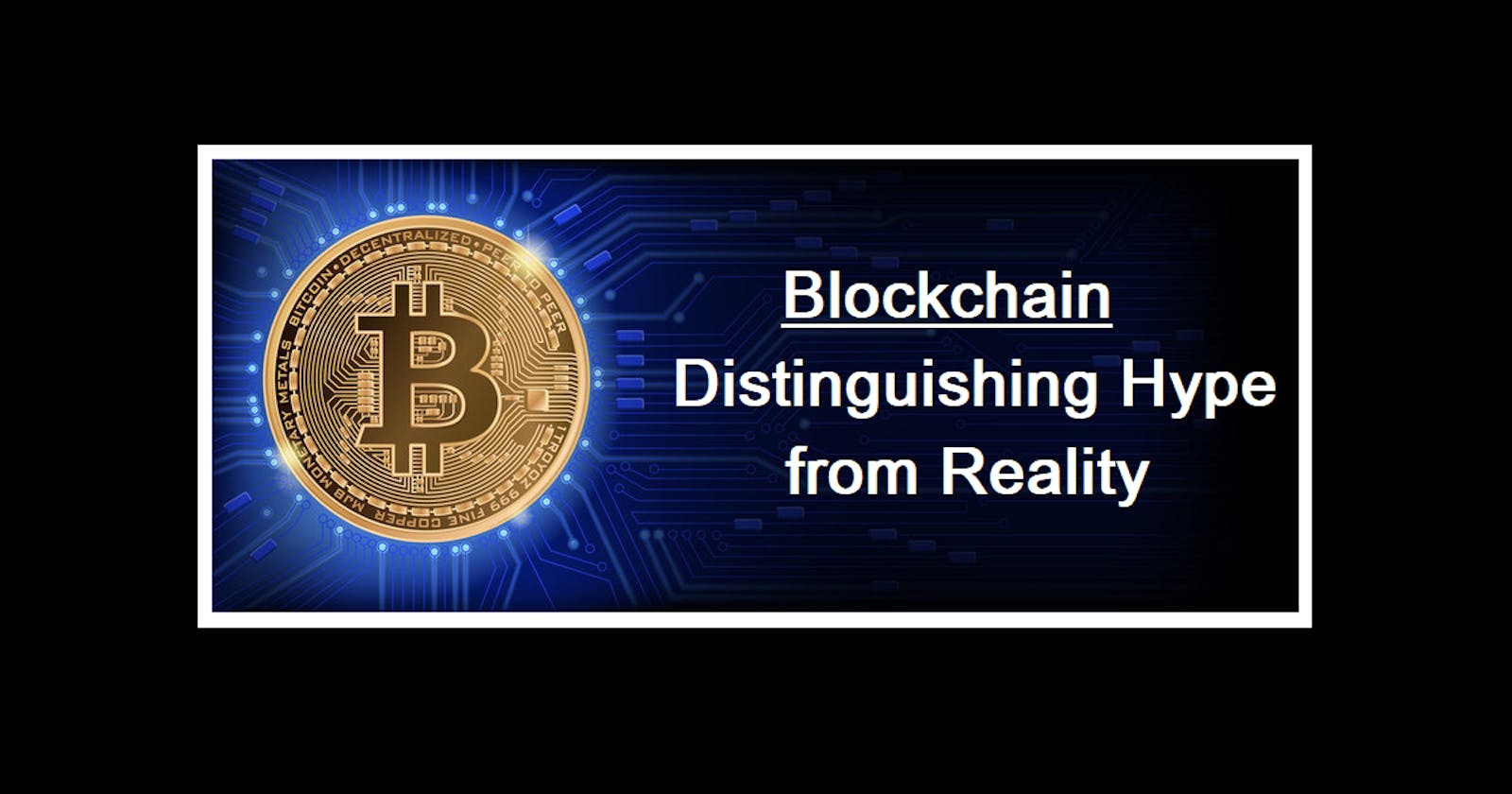Hello readers !! 🌼
In its most basic form, blockchain is a fundamental technology that functions as a distributed ledger. It enables a group of computer devices to agree that a transaction between two parties is genuine. These results are kept on a cryptographically secure ledger (the blockchain itself). Because it is exceedingly impossible to change information inside the ledger without impacting other portions of the ledger, all participants in a transaction may agree on a single version of the truth.
With this definition in hand, it's time to differentiate blockchain fact from hype.
Hype💭 : Blockchain = Bitcoin
Reality: blockchain is employed in bitcoin bookkeeping.
Because Bitcoin and cryptocurrencies catapulted blockchain into the mainstream, it's no wonder that the two are frequently intertwined and misunderstood. To be clear, bitcoin (and other cryptocurrencies) are only a few of the numerous apps that can operate on top of a blockchain software platform. However, blockchain has many other uses than cryptocurrencies, such as use cases in industrial supply chains, healthcare, and beyond. Bitcoin was the first cryptocurrency based on blockchain technology to be widely recognized or used. Outside of the financial world, blockchain technology has applications. Although blockchain is a distributed ledger technology, it is not the same as other distributed ledgers.
Hype💭 : Blockchain cannot be tampered with🤔
Reality: Blockchain is only as secure as the network's weakest link.
It is true that once data is recorded to the blockchain, it is almost hard to alter it. Unauthorized users and apps will likewise find it exceedingly difficult to access this data and input fresh data into the blockchain — but this is dependent on the integrity of the security architecture. In other words, enterprises must verify that the data and transactions placed into the blockchain ecosystem are secure. If interconnection points are compromised, the entire blockchain network may be jeopardised. As a result, end-to-end security is essential.
Hype💭 : Almost anything can be done with the Blockchain.
Reality: The code is powerful, but not miraculous.
It's easy to see why Bitcoin and Blockchain programmers are so enthusiastic. For many people, the Blockchain signifies a kind of authority that is based on mathematics rather than government or lawyers. Blockchain and smart contracts, according to some developers, will one day replace money, lawyers, and other types of arbitration. However, because cryptocurrency is still in its early stages, the code is limited to the number of bitcoin transactions in the chain.
Final Words
As you dispel all of the misconceptions, you'll have a better understanding of blockchain and its features. You will also learn about its disadvantages, which will help you have a better grasp of it.
